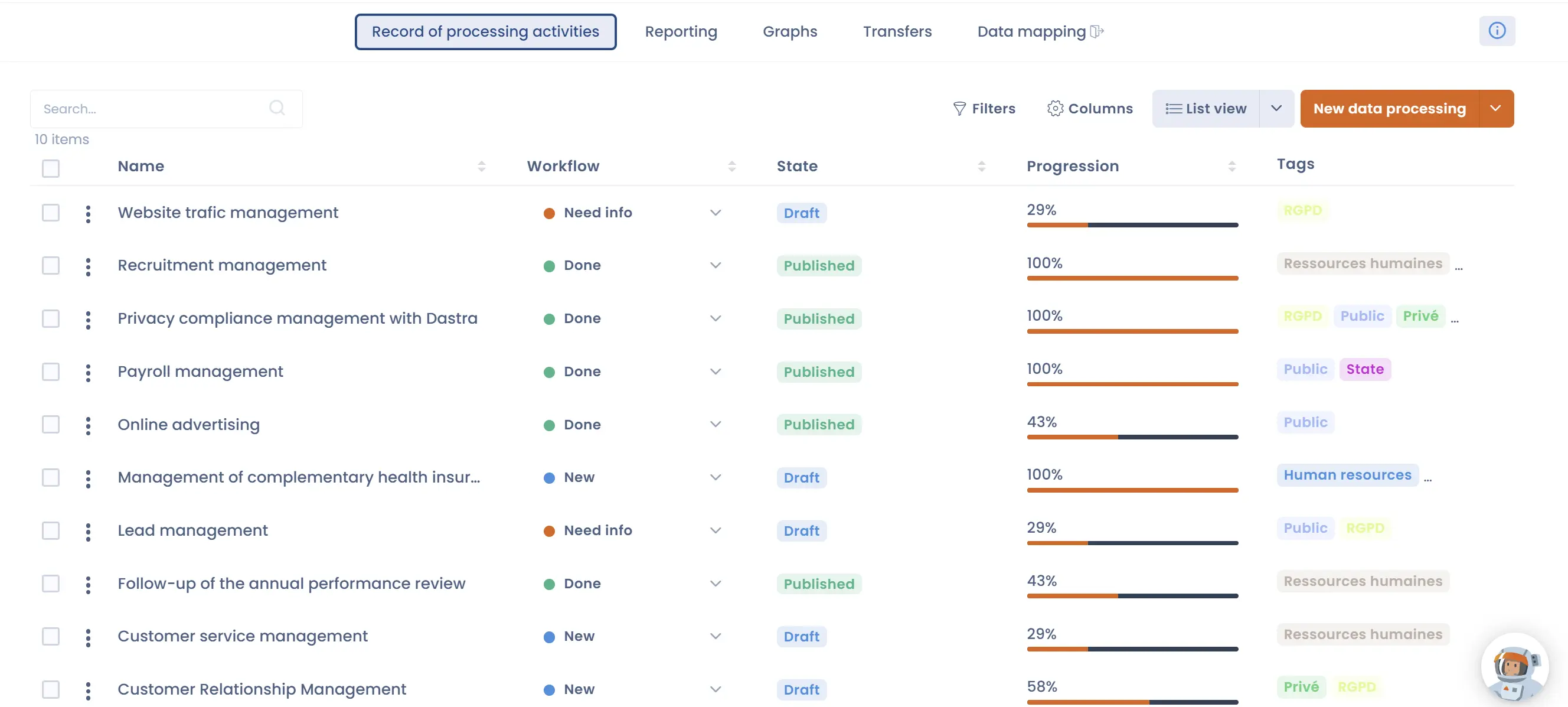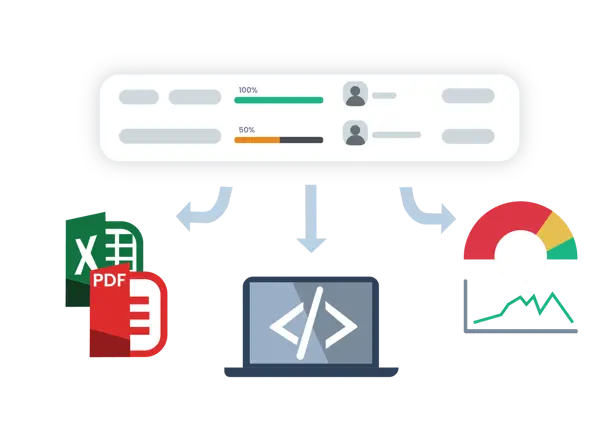![[Factsheet] Data retention periods](https://static.dastra.eu/content/8f836d78-d74c-4451-a6f5-cfc3924644d8/data-retention-1-600.webp)
[Factsheet] Data retention periods
Concept; life cycle of personal data; who must identify the retention period and how to identify it
The GDPR (General Data Protection Regulation) is a European regulation that came into effect in 2018, which governs the collection and processing of personal data within the European Union. It requires organizations to implement concrete measures to ensure transparency, security, and respect for the rights of individuals, under the threat of significant financial penalties in case of non-compliance.
Complying with the general data protection regulation is much more than a legal obligation, it is:
Optimize the management of personal data through automation and a clear overview. Save time, minimize risks, and strengthen your clients' trust, all with an intuitive and secure solution.
Comply with the obligation of Article 30 of the GDPR and benefit from a powerful management tool designed by GDPR experts for DPOs. Document processing activities using templates, questionnaires, or even AI to increase efficiency and finally keep them up to date!
Collaborate effectively with a set of pre-configured records designed to facilitate teamwork. Enrich your repositories and link them to your processing activities, data breaches, rights exercise requests, and files for comprehensive and centralized management.
From receiving requests to processing them, including secure authentication, centralize and track requests from your employees, clients, and contractors directly on the platform. Simplify management while ensuring compliance and security.
Record and track breaches detected internally or reported by your subcontractors, then assess their level of risk for optimal management.
Easily generate compliance reports and audits with one click using our document automation solution. Save time and focus on what matters! Export your record in a multitude of formats (PDF, Excel, CSV, JSON, Word, Markdown...) in just a few clicks.

Data Protection Officer (DPO)
Carry out your advisory and control mission simply and efficiently!
Data Controller (CDO)
Map the personal data of your organization
Data Protection Officer (DPO)
Align security and data protection.
Data controller
Align risk management, compliance, and data protection
External DPO
Simplify the management of all your clients' privacy as if you only had one.
General Management
Establish and effectively enhance data protection within your organization
Margreet Bruinsma, DPO
![[Factsheet] Data retention periods](https://static.dastra.eu/content/8f836d78-d74c-4451-a6f5-cfc3924644d8/data-retention-1-600.webp)
Concept; life cycle of personal data; who must identify the retention period and how to identify it
![[Factsheet] The record of data processing activities (ROPA)](https://static.dastra.eu/content/71782537-ad88-46c7-9dc8-b9b02fb07b01/ropa-600.webp)
What is a record of processing activities (ROPA)? Who is concerned and what does a recordof processing activities contai...

The basis of all data processing lies in the principle of purpose, a principle which also applies at the stage of re-use...
The three main principles of the general data protection regulation are:
The GDPR prohibits the collection and use of data revealing racial or ethnic origin, political opinions, religious or philosophical beliefs, trade union membership, as well as the processing of genetic data, biometric data allowing for the unique identification of a person, health information, or data related to an individual's sexual life or sexual orientation.
However, there are exceptions to this prohibition, including:
Dastra.eu is free to try, easy to set up, and work seamlessly together.
Free 30 day trial - No credit card required - No commitment

* You can unsubscribe at any time using the link provided in each newsletter.